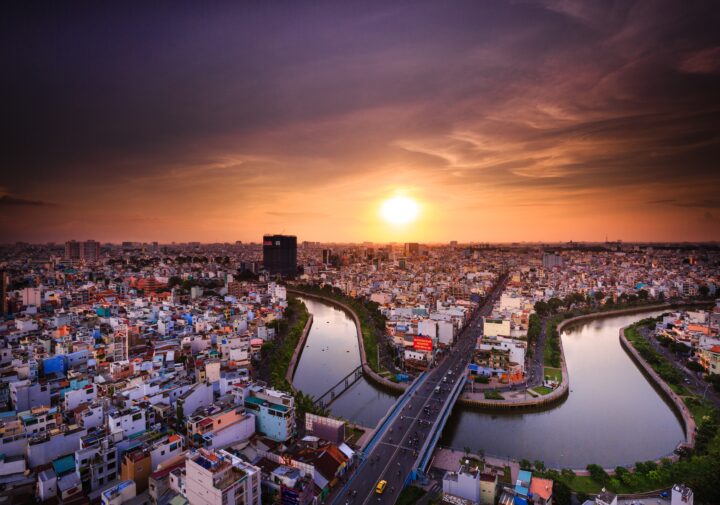Providing grants and technical assistance for promising solid waste management and waste recycling efforts in urban and peri-urban areas
With rapid global population growth and urbanization, municipal waste generation is expected to rise to 2.2 billion tons per year by 2025 according to the World Bank. Much of this waste will be generated in parts of the world without adequate waste management systems and infrastructure. Mismanaged waste anywhere can affect marine health everywhere when waste pollutes the environment and flows into our oceans. Marine debris, including microplastics in the ocean, can lead to declining global fish stocks and cost billions of dollars to fisheries, tourism, and other industries – threatening economies and livelihoods across the globe.
Over 300 million tons of plastic is produced each year, with a mere 10% being recycled worldwide.
USAID is working to address this critical challenge by building local capacity for more effective municipal waste management through the Municipal Waste Recycling Program, which operates in four countries that are among the world’s top contributors of marine plastics pollution: Indonesia, the Philippines, Sri Lanka, and Vietnam.
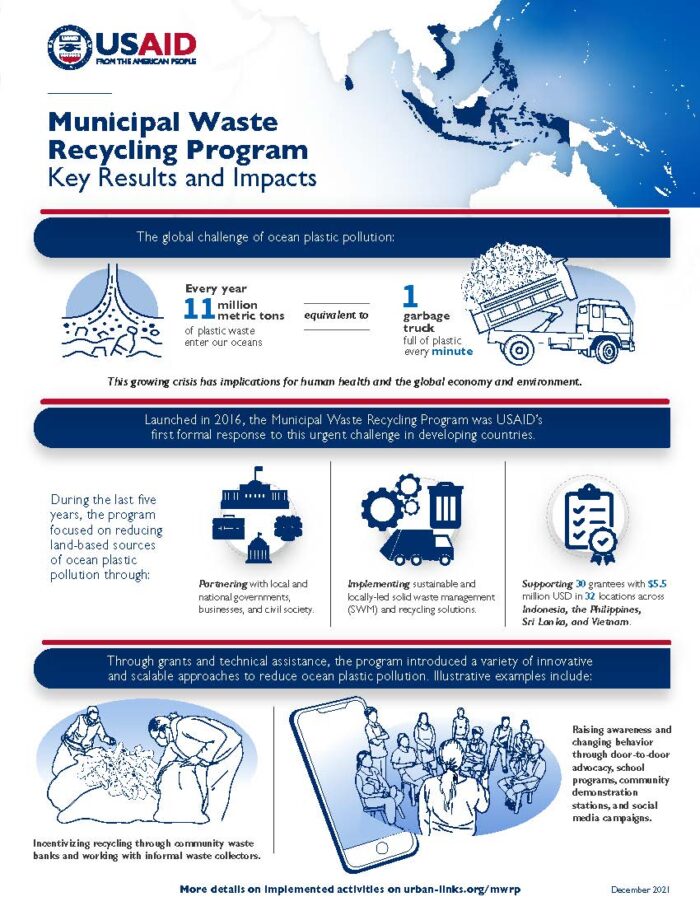
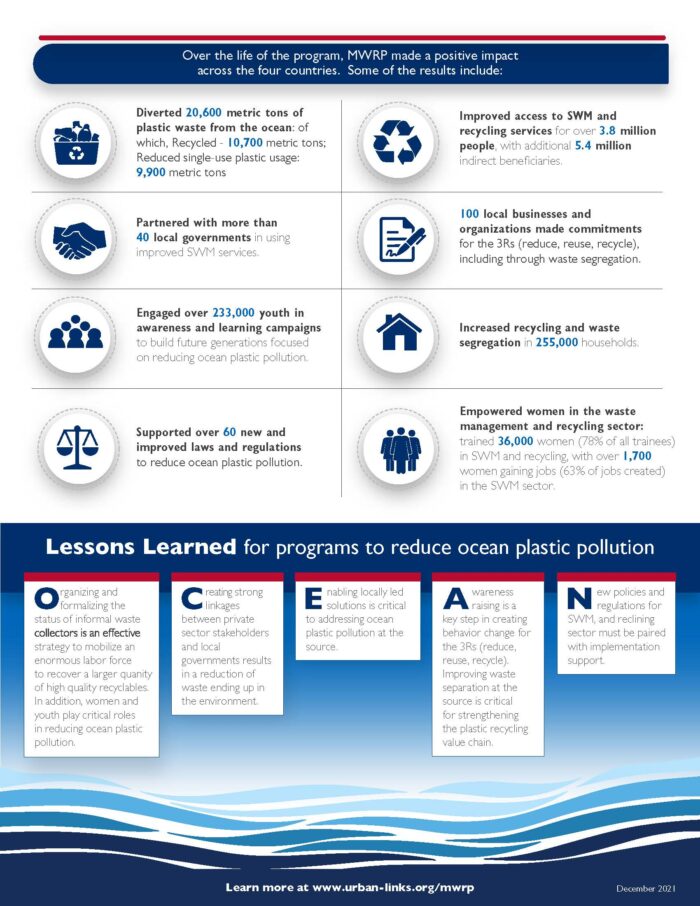
Grants Program
The Municipal Waste Recycling Program grants support innovative and/or scalable solid waste management and recycling activities that promote social inclusion, empower women and youth, generate jobs and economic growth, and strengthen resilience. Qualified non-profit and for-profit non-governmental organizations, as well as academic and scientific institutions in the four MWRP countries and the United States were eligible to apply for grants funding. Submissions for grant applications and concept notes are now closed, and there will be no further rounds of grants funding.
Contact
For general questions about Municipal Waste Recycling Program (MWRP), please contact the USAID Office in Washington DC oceanplastics@usaid.gov.
Project Features
Indonesia
Indonesia is the fourth most populous nation in the world with a massive coastal population and growing economy. It is estimated that 83% of the waste generated in Indonesia is mismanaged – not properly recycled or safely disposed of in sanitary landfills.
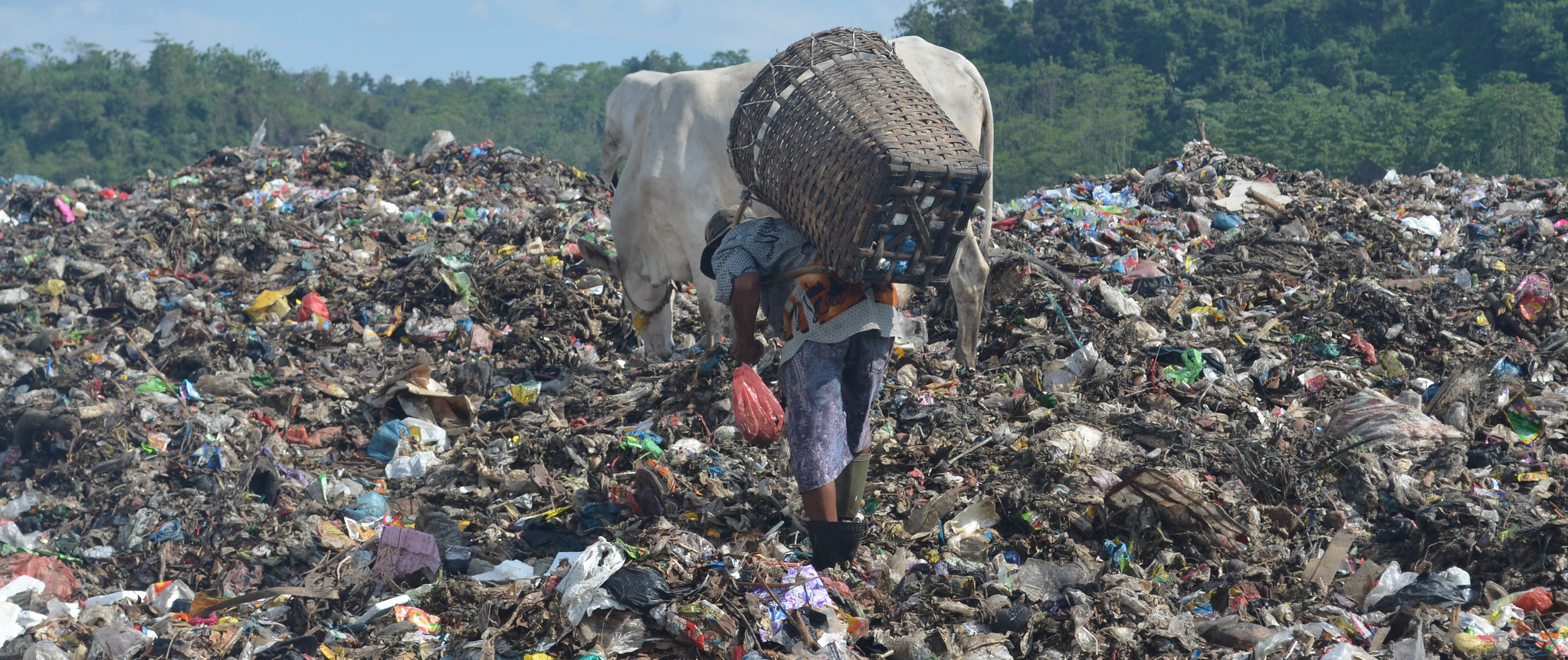
Recent scientific research shows that Indonesia could be responsible for as much as 1.29 million metric tons of plastic waste in our oceans annually, marking the country as the world’s second largest polluter as measured by total mass of mismanaged plastic debris. The Government of Indonesia is pursuing national-level strategies and policies for solid waste management and is implementing a national plan of action on marine plastic debris. However, local governments often lack the funding they need to implement these initiatives at the city level. As the fourth most populous nation in the world with a massive coastal population, Indonesia represents a key opportunity to confront the challenge of ocean plastics.
Related Content
MWRP Indonesia Tools and Resources
MWRP Indonesia Insights & Updates
Philippines
Waste generation in the Philippines varies from 0.2 kg per capita per day in rural areas to close to 1.0 kg per capita per day in affluent urban areas. The Filipino government has put in place regulations for waste collection and treatment at the national level and plastic regulations at various local levels. Unfortunately, solid waste management supervision and rules enforcement are weak.
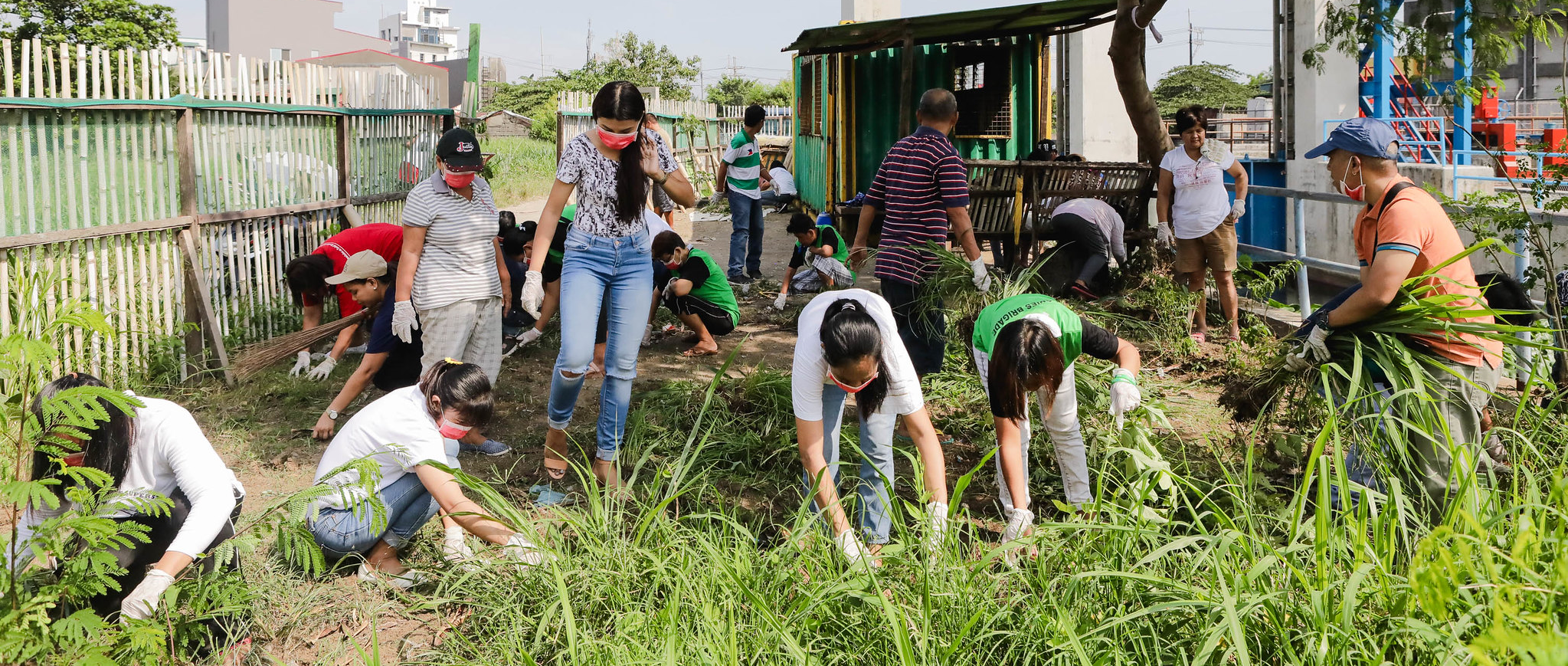
Currently, waste is disposed of in open dumping sites, as well as sanitary and unsanitary landfills. Local initiatives to promote waste segregation at source and “zero waste” initiatives are increasing plastic waste recycling.
Related Content
MWRP Philippines Tools & Resources
MWRP Philippines Insights & Updates
Sri Lanka
Over the past few decades, Sri Lanka has enjoyed advantages in economic growth; however, this development has come at a cost, particularly in regards to coastal pollution. In 2005, Sri Lanka generated an estimated 6,400 metric tons/day of solid waste.
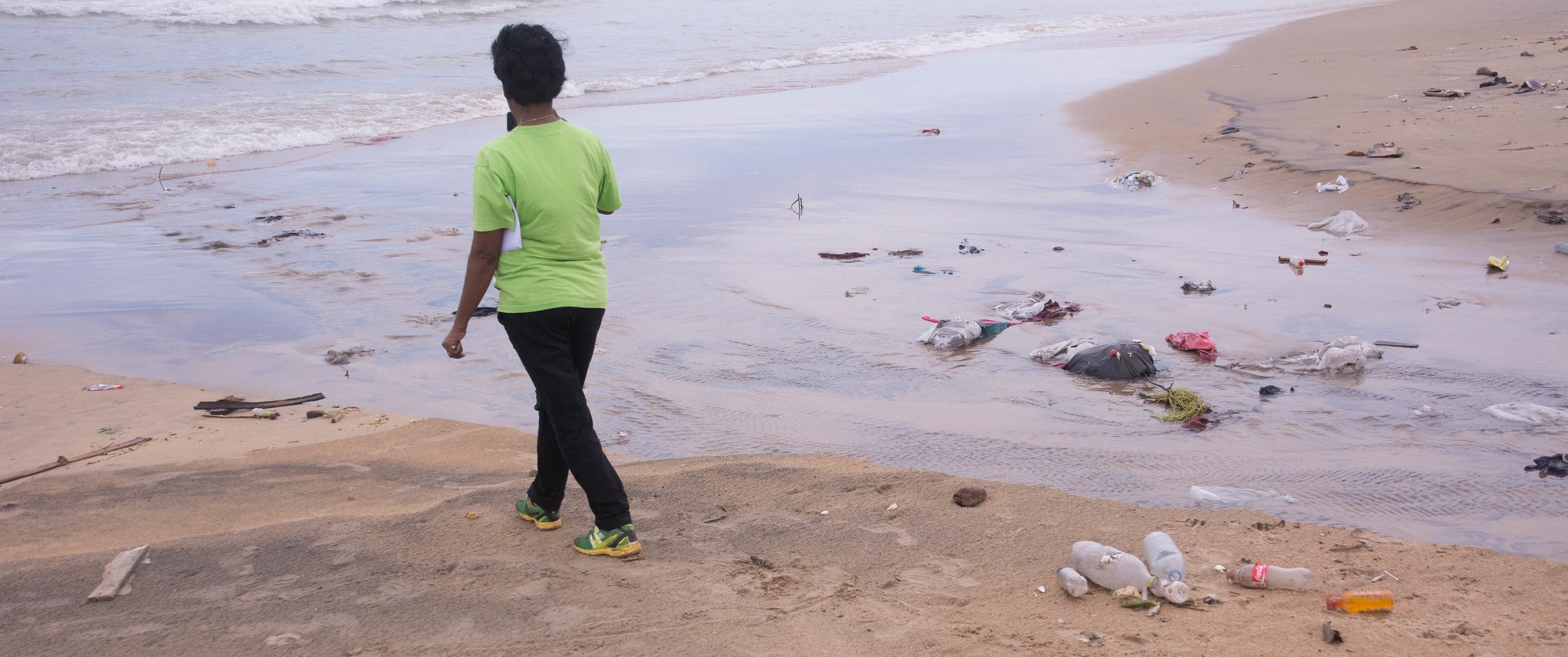
The mismanagement of waste and an insufficient number of disposal sites have led to a reduction of flood retention areas, the pollution of wetland habitats, and the pollution of surface and groundwater sources.
Related Content
MWRP Sri Lanka Tools & Resources
MWRP Sri Lanka Insights & Updates
Vietnam
Vietnam has experienced rapid urbanization and industrialization, notably in the last twenty years, as the country strives to reach industrialized nation status by 2020. Such intense development, particularly taking place in its larger cities, has led to an average annual increase of 10 to 16 % in urban waste generation.

Vietnam lacks the financial resources to adequately equip and build facilities, and faces issues with the collection, transport, treatment, and disposal in urban areas.


